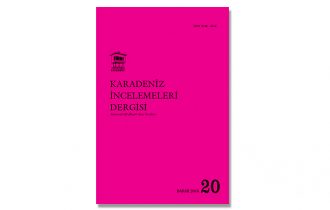BİR İMAMIN KİTAP TİCARETİYLE MÜNASEBETİ: AKÇAABATLI DERVİŞ MEHMET (1847) – THE CONNECTİON OF AN IMAM WITH BOOK TRADE: DERVISH MEHMET FROM AKÇAABAT (1847)
NECMETTİN AYGÜN
ÖZ
Türk-İslâm medeniyetinde kitap, “de ki: hiç bilenlerle bilmeyenler bir olur mu?” mealindeki ayet (Zümer Sûresi 9. Âyet) örneğinde, ihata etmiş olduğu “saygınlık” önceliğinde yerleşik ve köklü bir kültüre işaret etmesiyle farklılık taşımaktadır. Kitabın, toplumu aydınlatma ve topluma önder olma vazifesi gören ulema sınıfının elinde doğup gelişmesi, kitap ile din olgusunun, yani İslâm’ın bir arada düşünülmesini gerekli kılmıştır. Bu nedenle yaratana, din adamına veya dinî kurallara gösterilen saygı ve hürmet aynı oranda kitaba da gösterilmiştir. Dolayısıyla eskilerde kitap sahibi olmak “kâmil insan” olmakla veya toplumda seçkin bir kimse olmakla eş anlamlıydı. Bu çalışmada, 1847 tarihli bir arşiv belgesinden yola çıkarak Osmanlı dünyasında kitap ve sahaflık geleneği konularında bilgi verilmiş; aynı zamanda imam olan Akçaabatlı Derviş Mehmet’in kitap ticareti ile olan ilişkisi değerlendirilmiştir. Çalışma, Trabzon örneğinde, Osmanlı taşra yerleşimlerinin İstanbul ölçüsünde olmasa da, hatırı sayılır bir kitap kültürüne sahip olmalarına örnek teşkil etmesi açısından önem taşımaktadır.
Anahtar Sözcükler: Osmanlı Devleti, Trabzon, Kitap Kültürü, Kitap Ticareti, Derviş Mehmet
ABSTRACT
The book in Turkish-Islamic civilization has an important place as pointing out a stationary and rooted culture in the “respectability” priority as encinctured in the verse of Koran example, translated as: “Are those who know equal to those who do not know?”. Book was sprung and improved in the hands of the ulama (religious scholars) who were on a leading and enlightening position of the society, and this made it necessary to think the book and the religion, meaning Islam all together. That is why the respect and reverence given to the creator, to the ecclesiastics or to the religious principles are shown to the books equally. Accordingly, in past times, owning books was synonymous with being “perfect human being” (İnsan-ı Kâmil) or being a distinguished person in the society. In this study, information about books and second hand book trade (sahaflık) in the Ottoman World was given on the basis of an archive document dated 1847; the relation between Dervish and at the same time known as imam Mehmet from Akçaabat and the book trade was investigated. The study gives the example of Trabzon and is important in that it is an example of the fact that the Ottoman rural settlements, though not like Istanbul in scale, had a considerable book culture.
Keywords: Ottoman Empire, Trabzon, Book Culture, Book Trade, Dervish Mehmet.


